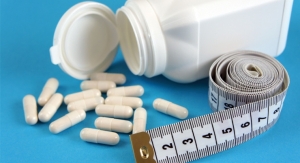02.18.16
Japan Bio Science Laboratory revealed the publication of a safety assessment of nattokinase as NSK-SD, prepared by the Applied Research Center (ARC) at global public health organization NSF International. Nattokinase is an enzyme present in the traditional Japanese soybean-derived food "Natto." The article describes the analysis of several GLP-compliant genotoxicity, acute toxicity, repeated dose studies in rodents, a 4-week clinical study in human volunteers and a study of the pathogenicity of Bacillus subtilis var. natto, the bacterial strain used to produce NSK-SD.
“Publishing robust safety assessments in a reputable, peer-reviewed journal like Food Chemical and Toxicology provides tremendous value to public health. It ushers important safety information into the public domain and provides scientific assurance to regulatory agencies as well as companies interested in bringing the latest food and dietary ingredients like NSK-SD into their products safely,” said Robert Donofrio, PhD, director of the Applied Research Center at NSF International.
Specifically, the results of the studies demonstrate that JBSL's nattokinase, NSK-SD, was non-mutagenic in bacterial cells and non-clastogenic in mammalian cells, and no adverse effects were observed in 28-day and 90-day subchronic toxicity studies conducted in Sprague-Dawley rats at doses up to 167 mg/kg-day and 1000 mg/kg-day, respectively. Mice inoculated with 7.55 x 108 CFU of the enzyme-producing bacterial strain showed no signs of toxicity or residual tissue concentrations of viable bacteria.
Data from the following studies contracted by Japan Bio Science Laboratory (JBSL), Osaka City, Japan, are presented in this report:
· Bacterial reverse mutation test (in-vitro) conducted at Kobuchisawa Laboratories, Fuji Biomedix Co., Ltd., Japan (Study No. FBM 02-8766; April 25, 2003)
· Chromosome aberration test (in-vitro) conducted at Kobuchisawa Laboratories, Fuji Biomedix Co., Ltd., Japan (Study No. FBM 02-8767; April 25, 2003)
· Single dose oral toxicity study in Sprague-Dawley rats conducted at Bozo Research Center Inc., Japan (Study No. C-B269; May 10, 2006)
· Oral repeated-dose 28-day toxicity study in Sprague-Dawley rats conducted at Kobuchisawa Laboratories, Fuji Biomedix Co., Ltd., Japan (Study No. FBM 02-2704; August 8, 2002)
· 13-week oral toxicity study in Sprague-Dawley rats conducted at Bozo Research Center Inc., Japan (Study No. B-5170; June 16, 2004)
· Pathogenicity study in ICR-strain SPF mice conducted at Gifu Research Laboratories, JBS Inc., Japan (Study No. JBS-03-MOPG-549; June 9, 2003)
· Open clinical trial in human volunteers conducted by TTC Co., Ltd., Japan (Study No. 27008).
· An Oral safety Study of Nattokinase Containing Food, Natural Stuper Kinase II: A Randomized, Placebo Controlled, Double-Bline Study; Progress in Medicine Vol.26 No.5 2006.5
“We take great pride in this assessment, as it demonstrates further validated, clinical evidence for the safety of NSK-SD nattokinase under the conditions evaluated in the assessment,” said Vincent Hackel, president of JBSL-USA, Incorporated. “This safety assessment, in combination with our ever-growing wealth of additional studies, supports JBSL as a valued leader for NSK-SD nattokinase across the globe.”
For more information: http://www.jbsl-net.com/english/index.html
“Publishing robust safety assessments in a reputable, peer-reviewed journal like Food Chemical and Toxicology provides tremendous value to public health. It ushers important safety information into the public domain and provides scientific assurance to regulatory agencies as well as companies interested in bringing the latest food and dietary ingredients like NSK-SD into their products safely,” said Robert Donofrio, PhD, director of the Applied Research Center at NSF International.
Specifically, the results of the studies demonstrate that JBSL's nattokinase, NSK-SD, was non-mutagenic in bacterial cells and non-clastogenic in mammalian cells, and no adverse effects were observed in 28-day and 90-day subchronic toxicity studies conducted in Sprague-Dawley rats at doses up to 167 mg/kg-day and 1000 mg/kg-day, respectively. Mice inoculated with 7.55 x 108 CFU of the enzyme-producing bacterial strain showed no signs of toxicity or residual tissue concentrations of viable bacteria.
Data from the following studies contracted by Japan Bio Science Laboratory (JBSL), Osaka City, Japan, are presented in this report:
· Bacterial reverse mutation test (in-vitro) conducted at Kobuchisawa Laboratories, Fuji Biomedix Co., Ltd., Japan (Study No. FBM 02-8766; April 25, 2003)
· Chromosome aberration test (in-vitro) conducted at Kobuchisawa Laboratories, Fuji Biomedix Co., Ltd., Japan (Study No. FBM 02-8767; April 25, 2003)
· Single dose oral toxicity study in Sprague-Dawley rats conducted at Bozo Research Center Inc., Japan (Study No. C-B269; May 10, 2006)
· Oral repeated-dose 28-day toxicity study in Sprague-Dawley rats conducted at Kobuchisawa Laboratories, Fuji Biomedix Co., Ltd., Japan (Study No. FBM 02-2704; August 8, 2002)
· 13-week oral toxicity study in Sprague-Dawley rats conducted at Bozo Research Center Inc., Japan (Study No. B-5170; June 16, 2004)
· Pathogenicity study in ICR-strain SPF mice conducted at Gifu Research Laboratories, JBS Inc., Japan (Study No. JBS-03-MOPG-549; June 9, 2003)
· Open clinical trial in human volunteers conducted by TTC Co., Ltd., Japan (Study No. 27008).
· An Oral safety Study of Nattokinase Containing Food, Natural Stuper Kinase II: A Randomized, Placebo Controlled, Double-Bline Study; Progress in Medicine Vol.26 No.5 2006.5
“We take great pride in this assessment, as it demonstrates further validated, clinical evidence for the safety of NSK-SD nattokinase under the conditions evaluated in the assessment,” said Vincent Hackel, president of JBSL-USA, Incorporated. “This safety assessment, in combination with our ever-growing wealth of additional studies, supports JBSL as a valued leader for NSK-SD nattokinase across the globe.”
For more information: http://www.jbsl-net.com/english/index.html














